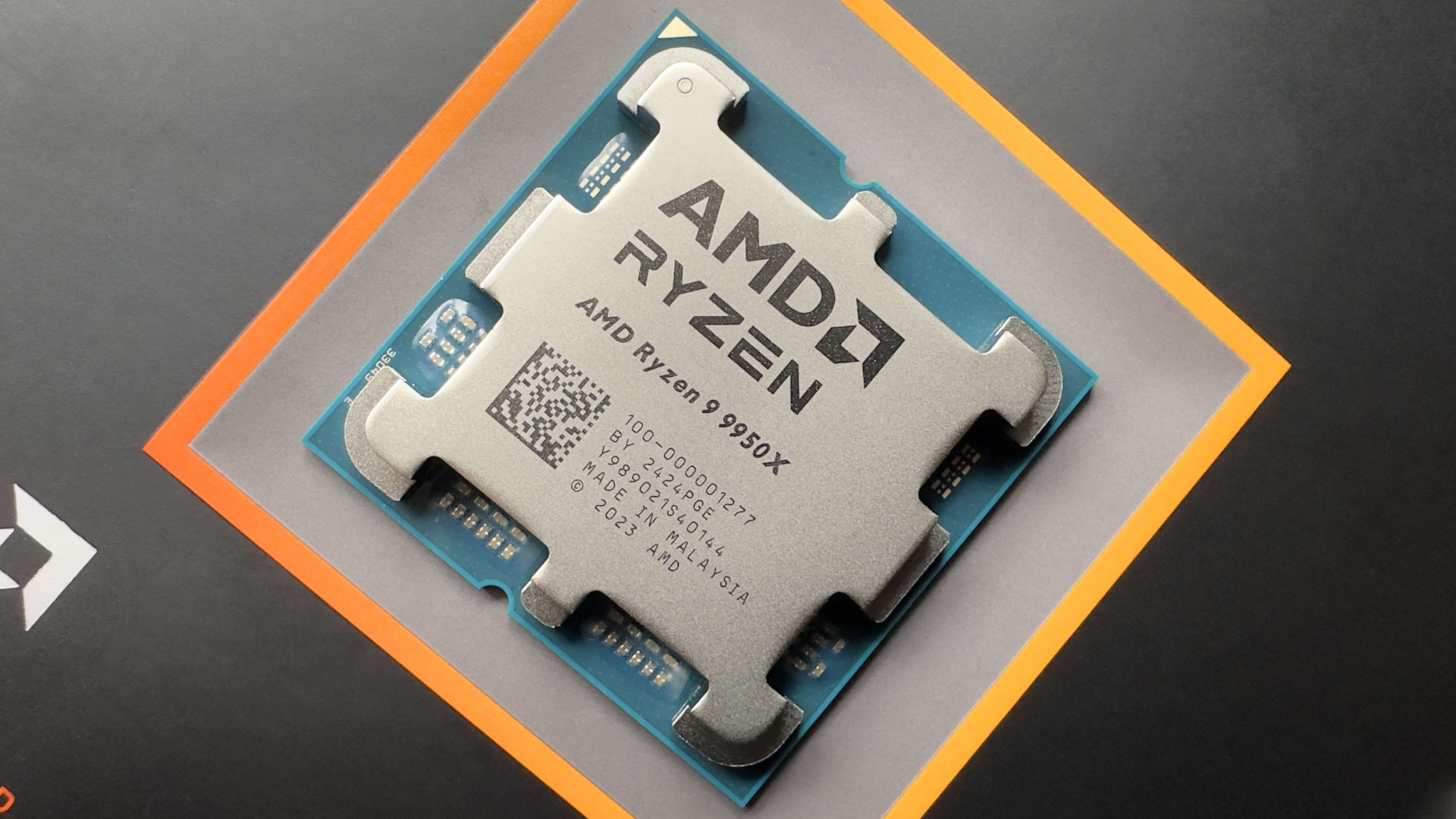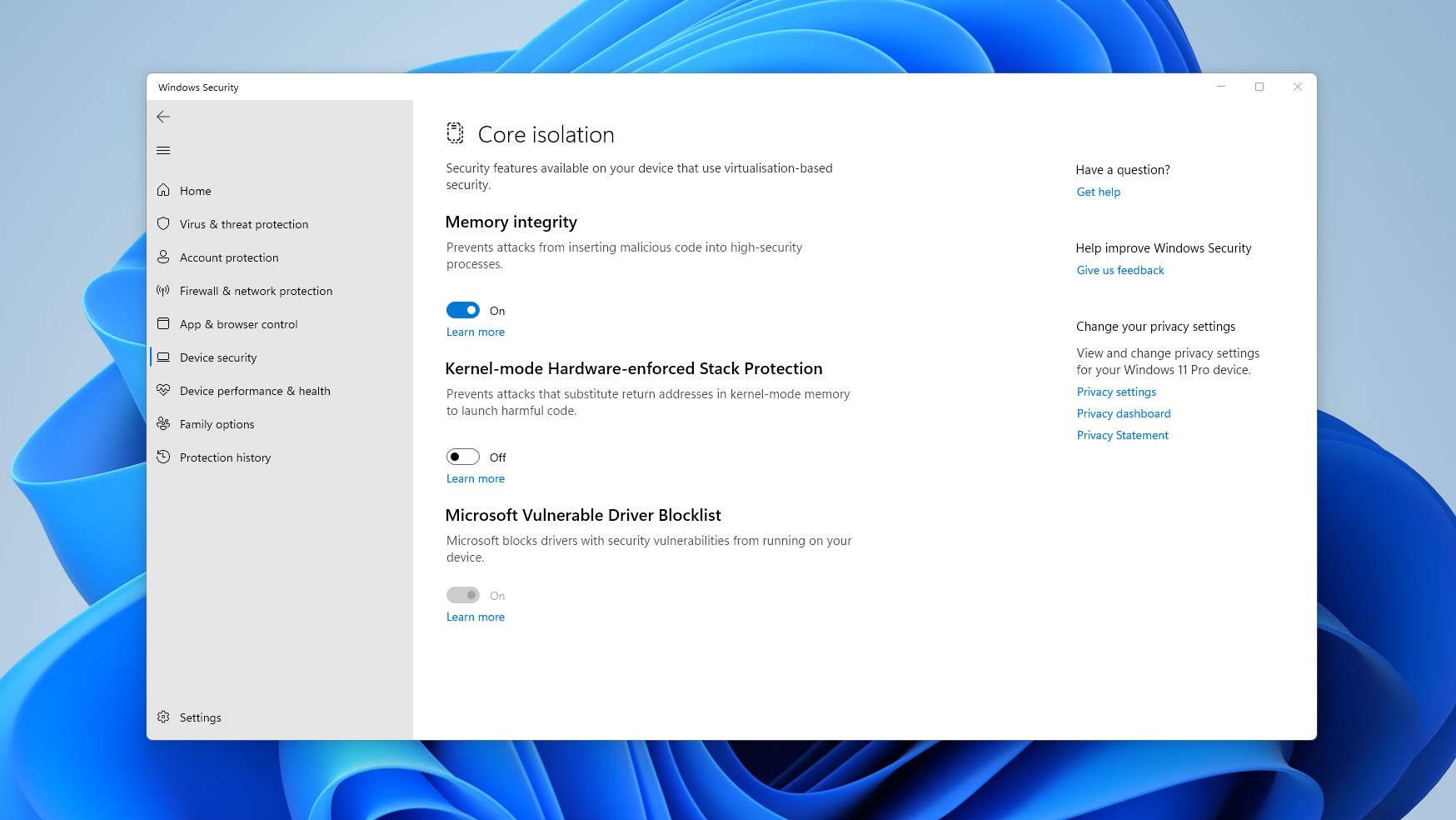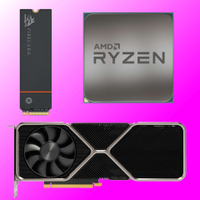AMD admits its chips actually have gaming 'parity' with Intel's 14th Gen, suggests lacklustre Ryzen 9000 performance could be because we're not fiddling with Windows' backend

AMD's new 9000-series CPUs have been underwhelming, performing only a little better than 7000-series chips yet costing a lot more at current prices. In what seems to me like passing the buck, AMD's now given an explanation or two for why Zen 5 gaming performance might not have matched up to the company's original projections.
In an blog post, AMD explains "why AMD-generated gaming data differs from reviewer data", which originally showed a "9% average generational uplift in 1080p gaming versus Ryzen 7000 series, and an average of 6% higher performance across more than 30 games when compared against the competition's best."
Now, after changing its testing, it instead claims "parity in gaming" with Intel and a "5-8% improvement in gaming over the Ryzen 7000 series".
Regarding what was different about its initial testing, AMD lists obvious variables such as game selection ("the makeup of the test suite") and less-than-ideal Intel configurations in AMD's initial tests (who would've guessed?). However, it also gives a reason that strikes me as bizarre, this being that it ran its tests in Windows Admin mode.
According to AMD, its "automated test methodology was run in 'Admin' mode which produced results that reflect branch prediction code optimizations not present in the version of Windows reviewers used to test Ryzen 9000 Series". This Admin mode is, presumably, what Hardware Unboxed referred to as a "hidden Administrator account" that has elevated privileges. AMD suggested such an account should be used because, in Hardware Unboxed's words, when these new Ryzen chips run on normal accounts, "they don't function as intended for bursty workloads".

Assuming this is what AMD means by "Admin mode", the obvious question is: What the hell? Why would anyone test exclusively under such a hidden account given that 99.9% of users won't be running their games under one? And, more importantly, why would AMD test using such an account for its initial numbers?
A cynical answer to this might be to inflate performance numbers by eliminating some system security overheads. A more charitable answer, however, might be because it didn't realise there'd be significant difference. But who's out there fiddling with Windows' backend, enabling a hidden Administrator account for no reason?
The biggest gaming news, reviews and hardware deals
Keep up to date with the most important stories and the best deals, as picked by the PC Gamer team.
This decision doesn't seem to match some more reasonable ones AMD made when testing the chips. AMD says it "tests with Windows Virtualization-based Security (VBS) enabled" and I agree with the company's decision to leave this on while testing given it's "the default Windows behaviour".
However, on this point tech YouTuber Level1Tech has pointed out something interesting: If you're running a process, eg, a game, under this hidden Windows Admin account rather than just right-clicking and "running as Adminstrator"—and again, why would anyone test using such a profile in the first place?—it seems you're essentially running that process without any of the VBS overhead. Which would complicate (though not disprove) AMD's claim that it tests with VBS enabled.
Perhaps, therefore, the branch prediction optimisations at the heart of Windows profile performance differences are equivalent to VBS-disabling optimisations. In which case, it'd be doubly silly to base performance assessments on such a profile.
All of this is to say: AMD shouldn't have tested its CPUs in such a manner to begin with, because 99% of users aren't going to be using them like that anyway. Reading between the lines, this is a sentiment the company does seem to agree with given it's now changed its relative gaming performance assessment.
Thankfully, there's now a way to use the improved branch prediction code without having to switch over your Windows profile. While updates to Windows in general should benefit all chips' performance, not just the 9000-series, AMD says "Optimized AMD-specific branch prediction code will be available in Windows 11, version 24H2 in preview through the Windows Insider Program (Release Preview Channel - Build 26100) or by downloading the ISO here."
The performance increase this should net you is, according to AMD (via Tom's Hardware), only 2-3%. But when these chips offer such meagre improvements over the previous generation to begin with, every little helps, right?
Best CPU for gaming: Top chips from Intel and AMD.
Best gaming motherboard: The right boards.
Best graphics card: Your perfect pixel-pusher awaits.
Best SSD for gaming: Get into the game first.

Jacob got his hands on a gaming PC for the first time when he was about 12 years old. He swiftly realised the local PC repair store had ripped him off with his build and vowed never to let another soul build his rig again. With this vow, Jacob the hardware junkie was born. Since then, Jacob's led a double-life as part-hardware geek, part-philosophy nerd, first working as a Hardware Writer for PCGamesN in 2020, then working towards a PhD in Philosophy for a few years (result pending a patiently awaited viva exam) while freelancing on the side for sites such as TechRadar, Pocket-lint, and yours truly, PC Gamer. Eventually, he gave up the ruthless mercenary life to join the world's #1 PC Gaming site full-time. It's definitely not an ego thing, he assures us.



